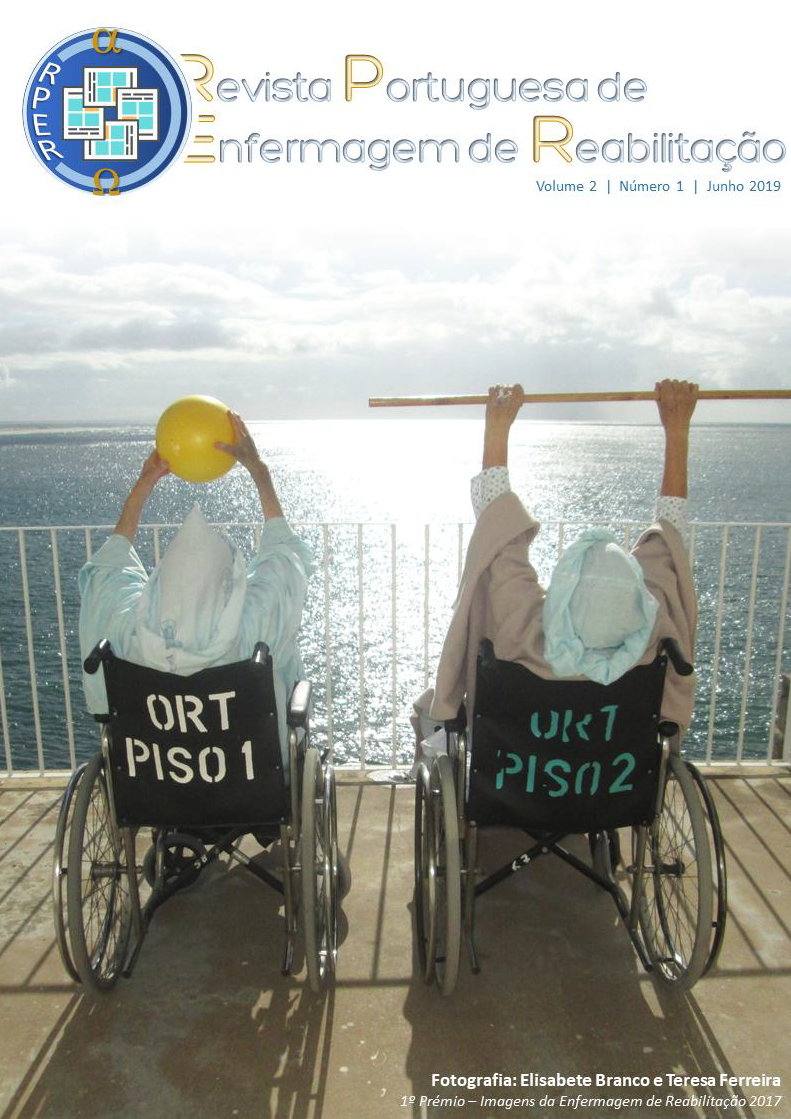Resumo
Introdução: A depressão é das formas mais comuns de distúrbio mental e uma das maiores causas de problemas de saúde da atualidade. Tem surgido a necessidade de aliar ao tratamento farmacológico, tratamentos adjuvantes tais como a psicoterapia e a prática de exercício físico, no tratamento deste transtorno.
Objetivo: identificar quais os benefícios do exercício físico na pessoa com depressão.
Método: Revisão Sistemática da Literatura, que utiliza as recomendações do Joanna Briggs Institute na estratégia PICO e as recomendações PRISMA, foi formulada a questão de pesquisa “quais os benefícios do exercício físico na pessoa com transtorno depressivo?” A pesquisa foi realizada com recurso a plataformas de bases de dados eletrónicas EBSCOhost e B-on.
Resultados: Foram incluídos nove estudos que cumpriam os critérios de inclusão, e onde se descreveram e analisaram o tipo, frequência, volume e duração de cada modalidade de exercício físico praticado em cada um dos estudos.
Conclusões: Os resultados obtidos permitem concluir que independentemente da frequência, duração e intensidade da prática de exercício físico no transtorno depressivo, esta diminui os sintomas depressivos, melhorando também a forma física, função cognitiva e bem-estar da pessoa com transtorno depressivo.
Referências
Knapen J, Vancampfort D, Moriën Y, Marchal Y. Exercise therapy improves both mental and physical health in patients with major depression. Disabil Rehabil.. 2015 Jul 31;37(16):1490-5. Acessível em: https://doi.org/10.3109/09638288.2014.972579
Schuch FB, Vancampfort D, Richards J, Rosenbaum S, Ward PB, Stubbs B. Exercise as a treatment for depression: a meta-analysis adjusting for publication bias. J Psychiatr. Res. 2016 Jun 1;77:42-51. Acessível em: https://doi.org/10.1016/j.jpsychires.2016.02.023
Tu RH, Zeng ZY, Zhong GQ, Wu WF, Lu YJ, Bo ZD, He Y, Huang WQ, Yao LM. Effects of exercise training on depression in patients with heart failure: a systematic review and meta?analysis of randomized controlled trials. Eur J Heart Fail.. 2014 Jul;16(7):749-57. Acessível em: https://doi.org/10.1002/ejhf.101
Stubbs B, Vancampfort D, Rosenbaum S, Ward PB, Richards J, Soundy A, Veronese N, Solmi M, Schuch FB. Dropout from exercise randomized controlled trials among people with depression: a meta-analysis and meta regression. J Affect Disord.. 2016 Jan 15;190:457-66. Acessível em: https://doi.org/10.1016/j.jad.2015.10.019
Santa-Clara H, Pinto I, Santos V, Pinto R, Melo X, Almeida JP, Pimenta N, Abreu A, Mendes M. Atividade física e exercício físico: especificidades no doente cardíaco. Rev Factores de Risco. 2015, 35:28-35.
Kerling A, Kück M, Tegtbur U, Grams L, Weber-Spickschen S, Hanke A, Stubbs B, Kahl KG. Exercise increases serum brain-derived neurotrophic factor in patients with major depressive disorder. J Affect Disord.. 2017 Jun 1;215:152-5. Acessível em: https://doi.org/10.1016/j.jad.2017.03.034
Sousa LMM, Firmino CF, Marques-Vieira CMA, Severino S, Pestana HCFC. Revisões da literatura científica: tipos, métodos e aplicações em enfermagem. Rev Port Enferm Reabil. 2018; 1(1): 46-55. Acessível em: http://www.aper.pt/ficheiros/revista/rpern0.pdf.
The Joanna Briggs Institute (AT). Joanna Briggs Institute’s user manual: version 5.0 system for the unified management. Assessment and Review of Information. Adelaide: Joanna Briggs Institute; 2011 Acessível em: http://joannabriggs.org/assets/docs/sumari/SUMARI-V5-User-guide.pdf
Sousa LM, Marques JM, Firmino CF, Frade F, Valentim OS, Antunes AV. Modelos de formulação da questão de investigação na Prática Baseada na Evidência. Rev Inv. Enferm. 2018; S2(23): 31-39. Acessível em: http://hdl.handle.net/20.500.12253/1287
Sousa, LMM, Vieira, CMA, Severino, SS, Antunes, AV. A metodologia de Revisão Integrativa da Literatura em Enfermagem. Rev Inv. Enferm. 2017; S2(21): 17-26. Acessível em: http://hdl.handle.net/20.500.12253/1311
Registered Nurses’ Association of Ontario (CA). Falls Prevention: Building the Foundations for Patient Safety. A Self Learning Package. Toronto, Canada: Registered Nurses’ Association of Ontario; 2007. Acessível em: https://rnao.ca/bpg/guidelines/resources/falls-prevention-building-foundations-patient-safety-selflearning-package
Moher D, Liberati A, Tetzlaff J, Altman DG, The PRISMA Group. Preferred Reporting Items for Systematic Reviews and Meta-Analyses: The PRISMA Statement.PLoS Med. 2009; 6(7): e1000097. Acessível em: https://doi.org/10.1371/journal.pmed1000097.
Minghetti A, Faude O, Hanssen H, Zahner L, Gerber M, Donath L. Sprint interval training (SIT) substantially reduces depressive symptoms in major depressive disorder (MDD): A randomized controlled trial. Psychiatry Res. 2018 Jul 1; 265:292-7. Acessível em: https://doi.org/10.1016/j.psychres.2018.04.053
Kerling A, Hartung D, Stubbs B, Kück M, Tegtbur U, Grams L, Weber-Spickschen TS, Kahl KG. Impact of aerobic exercise on muscle mass in patients with major depressive disorder: a randomized controlled trial. Neuropsychiatr Dis Treat.. 2018; 14:1969. Acessível em: https://doi.org/ 10.2147/NDT.S167786
Kerling A, Tegtbur U, Gützlaff E, Kück M, Borchert L, Ates Z, Frieling H, Hüper K, Hartung D, Schweiger U, Kahl KG. Effects of adjunctive exercise on physiological and psychological parameters in depression: a randomized pilot trial. J Affect Disord. 2015 May; 177:1-6. Acessível em: https://doi.org/10.1016/j.jad.2015.01.006
Olson RL, Brush CJ, Ehmann PJ, Alderman BL. A randomized trial of aerobic exercise on cognitive control in major depression. Clin Neurophysiol. 2017 Jun;128(6):903. Acessível em: https://doi.org/ 10.1016/j.clinph.2017.01.023
Haller N, Lorenz S, Pfirrmann D, Koch C, Lieb K, Dettweiler U, Simon P, Jung P. Individualized Web-Based Exercise for the Treatment of Depression: Randomized Controlled Trial. JMIR mental health. 2018;5(4):e10698. Acessível em: https://doi.org/ 10.2196/10698
Carneiro LS, Fonseca AM, Vieira-Coelho MA, Mota MP, Vasconcelos-Raposo J. Effects of structured exercise and pharmacotherapy vs. pharmacotherapy for adults with depressive symptoms: a randomized clinical trial. J Psychiatr Res. 2015 Dec 1;71:48-55. Acessível em: https://doi.org/ 10.1016/j.jpsychires.2015.09.007
Pentecost C, Farrand P, Greaves CJ, Taylor RS, Warren FC, Hillsdon M, Green C, Welsman JR, Rayson K, Evans PH, Taylor AH. Combining behavioural activation with physical activity promotion for adults with depression: findings of a parallel-group pilot randomised controlled trial (BAcPAc). Trials. 2015 Dec 1;16(1):367. Acessível em: https://doi.org/ 10.1186/s13063-015-0881-0
Ólafsdóttir KB, Kristjánsdóttir H, Saavedra JM. Effects of exercise on depression and anxiety. A comparison to transdiagnostic cognitive behavioral therapy. Community Ment Health J. 2018 Aug 1;54(6):855-9. Acessível em: https://doi.org/ 10.1007/s10597-017-0213-9
Helgadóttir B, Hallgren M, Ekblom Ö, Forsell Y. Training fast or slow? Exercise for depression: a randomized controlled trial. Prev Med. 2016 Oct 1; 91:123-31. Acessível em: https://doi.org/10.1016/j.ypmed.2016.08.011

Este trabalho encontra-se publicado com a Licença Internacional Creative Commons Atribuição-NãoComercial-SemDerivações 4.0.
Direitos de Autor (c) 2019 Revista Portuguesa de Enfermagem de Reabilitação
Downloads
| Acessos ao Resumo | 1597 |
|---|
| 1767 |
|---|
| PDF (English) | 96 |
|---|





